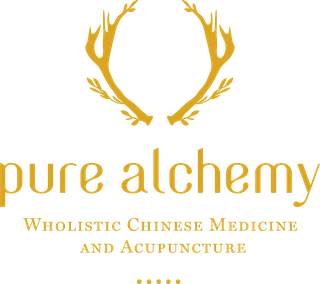Why going through menopause should not be as stressful as you think, or have been told.
I am often intrigued by the fact that it is accepted in the Western world that going through menopause is conceived to be a stressful experience.
While a percentage of women find this to be true, it is not a given. This leads to the question of why some women easily flow through the change of life throughout menopause, and others feel like they are going crazy.
And, are there lifestyle and dietary practices that can ease the transition?
I am a Chinese Medicine practitioner, and, in my practice, I often see women who are menopausal or perimenopausal. Believe me, the suffering is very real. The barrage of night sweats, hot flushes, lack of sleep, mood swings and anxiety become a never-ending cycle of punishment for which there seems no escape.
When baby girls are born, they have within their ovaries approximately 400 egg follicles within the ovaries. After menarche, an egg is released each cycle. As the eggs are exhausted, a woman will go into perimenopause or menopause.
One of the functions of the ovaries, apart from housing the eggs, is to create hormones such as estrogen. As the number of follicles diminish, the ovaries produce less and less estrogen.
Roughly in a Woman’s late 40’s or early 50’s, the cycle of ovulation stops. A woman is said to have gone through menopause when a full year has passed without a menstrual cycle.
Why Do Some Women Breeze Through Menopause?
Not all women suffer during menopause, and interestingly, in the ancient Chinese culture, it seems to not be an issue as it is in present times. While, it is discussed as imbalances that may occur, it is not considered a given, but more of a propensity towards certain imbalances.
It is natural in Chinese medicine, that as one ages, that “kidney” function declines. The kidneys are responsible for not only the urinary function, but also for storing vital essence and life force. It governs reproduction, sexual maturation, bone, and marrow including the brain. A strong kidney function usually predisposes a person to have strong willpower, and tenacity.
The kidney function within Chinese medicine can further be divided into kidney Yin and kidney Yang. The kidney yin function is responsible for the deep nourishment of the body. The image of flourishing yin might be like a lush forest, where fluid and nutrients are plenty.
Kidney yang is the warming principle of the body. Without this, we would be cold, stiff, and immobile. The yang warms the organs, circulation, and joints, making life possible. Without kidney yang, your experience of life might be like an Artic winter: cold, inhospitable, and lacking in vitality.
Kidney yin and yang work hand in hand to keep each other in check. Too much yin, and your beautiful, lush garden may turn into a marsh. Too much yang, and your body might turn into a parched desert.
Through decades of menstruating, Women slowly deplete their blood stores which come out each month as menstruation. Blood is a fluid, and its nature is Yin, so as we menstruate every month, we are losing yin fluids. This makes us more yang in nature by comparison.
Having a relative dominance of yang predisposes a woman to experience imbalances of the heat and yang variety. Sensations of flushing heat, anxiety, insomnia, vaginal dryness, and irritability are all disorders of a “yang” nature.
So, women that have a good “yin” store in their years preceding menopause are less likely to suffer severe symptoms during menopause.
What does Western Medicine say?
I am really excited to see a correlation between Chinese and Western medicine when it comes to menopause. You see, as the ovaries complete their ovulation journey, they no longer produce oestrogen. Our adrenal glands thankfully take over and produce oestrogen in smaller amounts. Thus, if you are adrenally weak through stress, overwork, lack of sleep and poor nutrition, you will likely experience more severe menopause symptoms.
The key in both Western and Chinese medicine going into menopause is to look after our kidneys/adrenal glands.
Nourishing our Kidneys and Adrenals for a Smooth Menopause transition
While there is a genetic component to menopause and menopausal symptoms, we still have a great capacity to influence the quality of our lives during these times. Below is a list of basics that may be employed immediately to assist you on your journey.
- Get adequate and proper sleep – one of the best ways to treat adrenal fatigue and to rejuvenate your body is to get regular good quality and deep sleep. Many people will sleep but have poor quality sleep. If your sleep is not good quality, you may want to look at different therapies to improve the quality.
- Eat abundant fruit and vegetables – ensure that you are receiving minerals, vitamins, and phytonutrients to create blood and yin. Most vitamins and minerals come from the plant realm. The most yin foods are fruit and vegetables, so consumption of them assists in the production of yin fluids.
- Moderate stress – There are numerous practices that help deal with stress and anxiety. Engage in them as a discipline such as breathwork or meditation. Stress and anxiety burn your adrenals and kidneys out.
- Do less – Constant activity of the mind and body will draw upon your energetic reserves. When you are constantly busy, you draw upon the energy of your kidneys.
- Detox the Liver – One of the functions of the Liver is to process excess hormones. As menopause is a process of decreasing relative hormonal levels, having a healthy Liver will moderate the huge changes in hormones.
- Avoid Alcohol, and Stimulants like Coffee – The nature of these 2 substances is yang. The consumption of these fluids will heat the body and make flushes more likely to occur.
For more information, talk to your licensed healthcare professional about how herbs and acupuncture may be of assistance to you.




